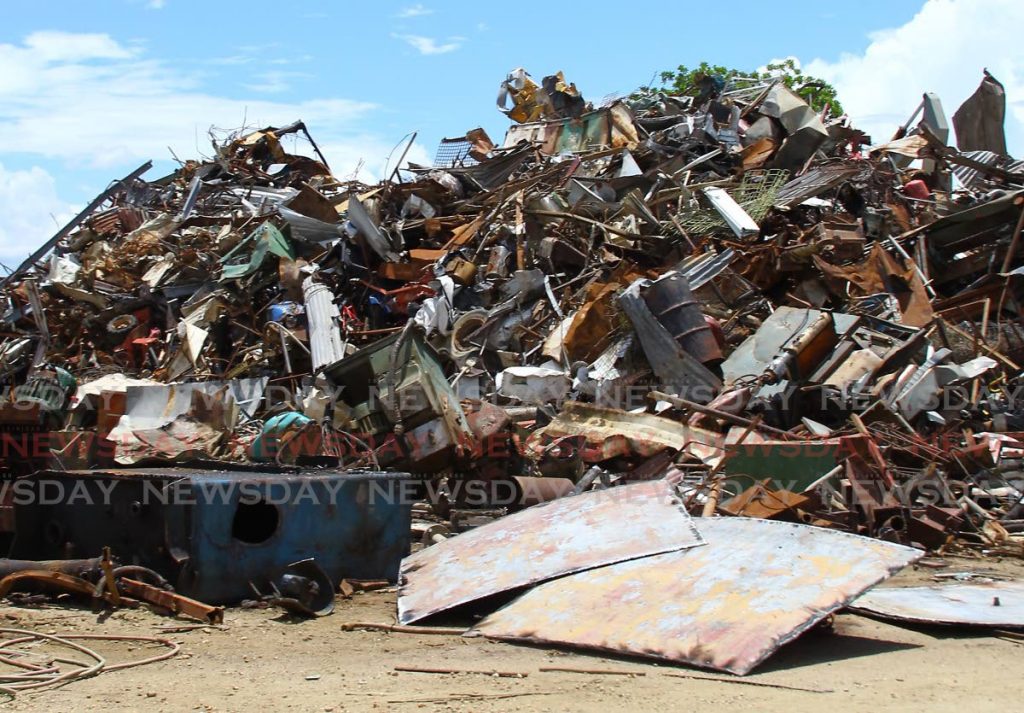What's the deal on the scrap iron policy?

Times are tough. Jobs are scarce. Government spokesmen encourage people who have been retrenched or who have been unable to find a job to become entrepreneurs, and so they should. Ministers, ministries, permanent secretaries and academics teaching management point to the endless opportunities available to entrepreneurs. In the beginning, they point out, all business organisations were start-ups. You, too, young man (or woman as the case may be), you are told, can do the same.
When forced labour was abolished and when indentureship ceased, people freed from the restrictions that bound them became, then, as now, entrepreneurs. They had families to support, children to feed, then as now. And there was a market for goods and services that was open and not being filled then, as now. Standard commercial working hours were 8 am- 4 pm.
People saw a niche to be filled. Entrepreneurs opened little shops and cafes that stayed open till midnight, some all night, to service people coming off and on night shifts, when the big shops had long since closed. Small entrepreneurs made a good living by responding to the needs of working people. It was a tough life, but people survived and started to thrive.
But, but, but, but. There is always a but, isn’t there?
As the small shops increased their sales, the big established stores found their profits were diminishing. So what did they do to fight this competition? Through their representatives appointed to the LegCo, as the governing Legislative Council was colloquially known. Members of LegCo were appointed by the governor from among “leading citizens” who were all male wealthy owners of property and/or their lawyers.
In 1938 they passed a law called the Shop Hours of Opening and Employment Act which restricted hours to those in the established large shops unless permission was granted under certain strict regulations and even then, only if the entrepreneur paid for and obtained a licence from the appropriate government office.
Then, as now, this was not easy to do for poorly dressed and often semi-literate country people. Only a certain number (usually two) family members could be employed past a certain hour and so on and so forth.
Of course, all that is academic now. Those restrictive practices ceased long ago. Entrepreneurs are now helped and encouraged. Well, aren’t they?
Last week’s public announcement by the president of the Scrap Iron Dealers’ Association of the Government’s new scrap metal policy left me wondering. Scrap iron collection and export is apparently a very lucrative business, or at least, for some people it has become a very lucrative – multi-million-dollar – business. But for the small entrepreneur it appears to be “deja vu all over again,” as the old saying goes.

Listen to what the president, Mr Ferguson, and vice president, Mr Seejattan, of the newly formed TT Scrap Iron Dealers’Association had to say about what they claim will be in the policy. It has several requirements and restrictions and heavy fines for breaking the law. The laws are not yet drafted so it is not – not yet – law, but this is what the president and vice president are recommending:
1. To begin, or to legally continue to deal in scrap iron you must obtain a licence from the Ministry of Trade and Industry.
2. There are three licences that you may obtain: a dealer’s or site licence, an exporter’s licence and a collector’s licence.
3. You must obtain a certificate of good character from the police.
4. Dealers who purchase scrap iron from homeowners will have to get details (documented) of their transactions, including details of the sellers’ identification.
I read this in Monday morning’s press, and I stood in my shoes and I wondered.
There is a man who comes around my area once or twice a month in a little van. I think he is the same guy who sells manure as the rainy season starts. He calls out offering to buy any scrap iron anyone has. Old tricycles, broken down refrigerators, that sort of thing.
Now will this mean we will have to give him in writing our identity details and how much we sold the scrap for? Receipts duly stamped and initialled? He isn’t too good with “the writing thing,” he said, frightened.
But Seejattan reportedly said at a public meeting: "Van men, most of you are scared…How are you going to qualify? You must get a certificate of good character from the police?
"You must have a son or daughter who can get it from the police. I don’t know what the procedure is today, maybe it has changed, but when I went to get mine, the police required me to go myself."
Ferguson, the president, then said that the industry hires a lot of ex-prisoners. I am not sure how that relates.
Ferguson said the new policy is that if the man in the van doesn’t provide proper records, he can be fined $50,000, and if he doesn’t show the records to the about-to-be-appointed new inspectors of scrap iron dealers, he will be fined $30,000. He didn’t say whether this was instead of or in addition to the $50,000. There also will be restrictions on where dealers can keep their scrap iron yards and how neat and orderly, they must be.
Long-standing dealer Mr Ferguson is quoted as saying, “the new laws will stop the setting up of fly-by-night scrap iron yards and the resulting competition they give to long-standing dealers.”
Well, that is the point isn’t it? Deja vu all over again.

Comments
"What’s the deal on the scrap iron policy?"